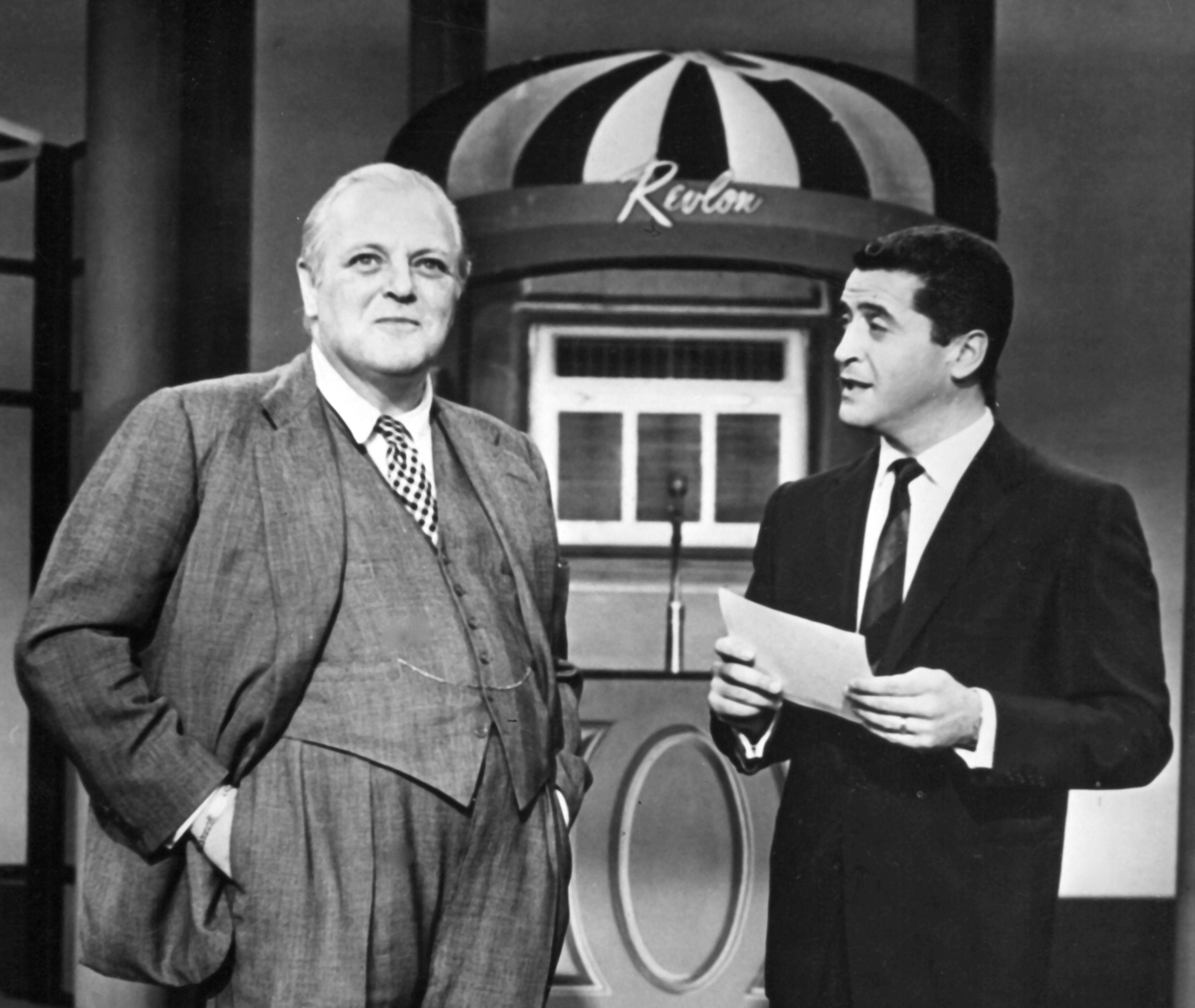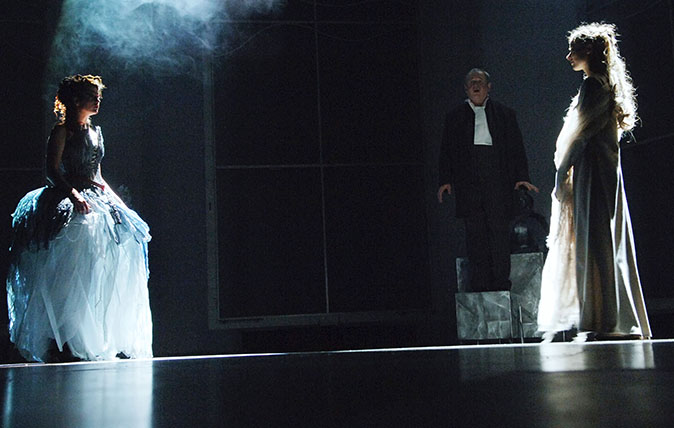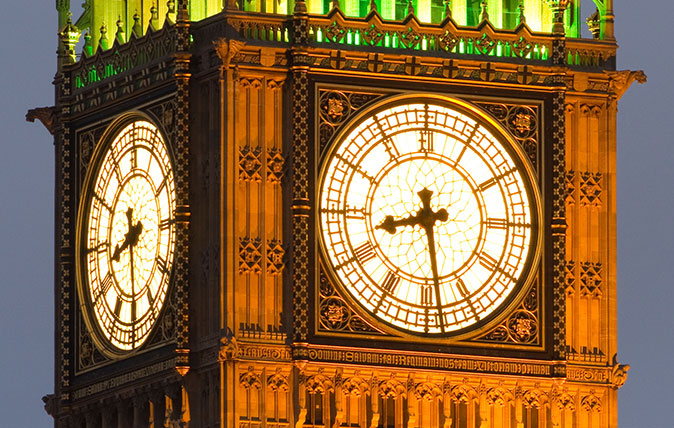Curious Questions: Why do we talk about the '$64,000 question' — even in a country where we don't use dollars?
A question about a question? Absolutely. Martin Fone gets to the bottom of where this curious phrase originates — and how it even found its way across the Atlantic.


I try to avoid Americanisms but the other day I used the $64,000 question. It seemed to be the mot juste, as what I was asking went to the heart of the matter under discussion.
After admonishing myself for my lapse, I began to wonder; what is the story behind the phrase? I soon discovered that the impact of inflation, the influence of American culture on its British counterpart and the ready adoption of catchphrases and hooks into figurative speech are encapsulated in these ten syllables.
In 1940 CBS, in association with pen and razor manufacturers, Eversharp, launched a radio programme called Take It or Leave It, described at the time as “a half-hour of fun and laughs as contestants hope for success on the sixty-four dollar questions”. Whether it lived up to its billing in the mirth stakes is anybody’s guess, but it did run until 1947, when it transferred to NBC for a further three years.
The number sixty-four is, at first blush, an odd and strangely precise amount for a prize, but there is method in the organisers’ madness. The mathematicians amongst you will know that it is the smallest number with precisely seven divisors. And that was its attraction. It was possible to devise a quiz of seven rounds with the value of the pot doubling each round. If the contestant answered a question incorrectly, they lost the pot. They had the opportunity to declare themselves out at any stage, taking whatever amount they had accumulated at the time. The final question, the correct answer to which scooped the jackpot, was valued at $64.
The jackpot question was soon seized upon by marketeers clued into the zeitgeist. An advert for Potosi’s Pure Malt Beer in 1941 ran, “what’s the beer with old-time body and flavour? Why Potosi pure malt beer. There is the sixty-four dollar question on any Quiz Show”. The pedants among us might say that it was the answer, but you get the drift.
Journalists, not averse to a bit of harmless hyperbole, soon realised that $64 was a rather paltry sum and applied their own multiplier. The Pittsburgh Press on June 15, 1943 ran a report on the aftermath of a fight involving Jake LaMotta. “Sixty-four thousand dollar question:”, it ran, “What do you think Jake LaMotta was doing in his dressing room immediately after his skirmish with Fritzie Zavic?” The mind boggles, particularly as before revealing the answer, the paper informed the reader that the pugilist was clad only in his shorts and had his eyes closed. Fortunately, the answer was that he was shadow boxing for all he was worth.
It took twelve years for the broadcasters to catch up with the press, CBS launching a television show on June 7, 1955 called the $64,000 Question.
Exquisite houses, the beauty of Nature, and how to get the most from your life, straight to your inbox.
This, in turn, was picked up by Associated Television (ATV) over here in Britain. Their show, first transmitted on May 19, 1956, was called, rather bizarrely, The 64,000 Question, all reference to the American currency being quietly dropped. Contemporary reports reveal the extraordinary lengths the producers went to in order to preserve the integrity of their programme. A former Scotland Yard detective, one Detective Superintendent Fabian, was deployed to mount guard and the questions (and, presumably, the answers) were locked in a safe, to which Fabian alone had access. The veracity of the answers was assured by reference to the Encyclopaedia Britannica.
The main problem the producers had to find an answer to was the complexity presented by the British system of currency. They hit upon the ingenious idea of using the sixpence (2.5p in decimal currency) as their base unit and so the jackpot was 64,000 sixpences or £1,600 (about £33,500 at today’s value). By answering the opening question correctly, the contestant won 64 sixpences or £1 12s.
The show ran for three series, the last edition of which was shown on January 18, 1958, by which time the jackpot had doubled, the base unit now being a shilling rather than the old tanner. The first prize of £3,200, after adjustment for inflation, was the largest monetary prize available on British TV until the Independent Television Commission lifted the prize cap in 1993, paving the way for Who Wants to be a Millionaire.
A version of The Sixty Four Thousand Question was revived in 1990 with Bob Monkhouse as host and ran for four series of thirteen episodes until September 4, 1993, using £1 as its base unit. It is worth noting that Who Wants to be a Millionaire, hosted by Chris Tarrant, used the mathematical properties of the number 64 in the early rounds as the pot built up. Ah, the power of sixty-four.
https://youtu.be/q_e1Dbg8CpE?t=37
As in America, the show was seized upon by earnest copywriters in a figurative sense. An edition of the Birmingham Post and Birmingham Gazette from December 1956 ran an advert for J Law (Automobiles) Ltd which asked, “the 64,000 question – what is it that no business can afford to be without?” The answer, somewhat surprising to modern eyes at least, was “The Austin A35 Van, of course”.
But the absence of a unit of currency to accompany the number made the phrase jar on the sensibilities of the English ear. For want of something better and reflecting the encroachment of American culture on our country, the unit of American currency slipped into the phrase on this side of the pond.
A shame really but, frankly, what is wrong with just saying the key or essential question?

Credit: apples and oranges Photo by Best Shot Factory/REX/Shutterstock
Curious Questions: Can you actually compare apples and oranges?
It's repeated so often these days that we've come to regard it as a truism, but are apples and oranges

Curious Questions: Why do actors say ‘break a leg’?
The best-known phrase for wishing an actor luck is also the most baffling. Martin Fone, author of 'Fifty Curious Questions',

Credit: alamy
Curious Questions: Why is a day divided into twenty-four hours?
We've been counting things in convenient chunks of ten for thousands of years, so why on earth is a day
After graduating in Classics from Trinity College Cambridge and a 38 year career in the financial services sector in the City of London, Martin Fone started blogging and writing on a freelance basis as he slipped into retirement. He has developed a fearless passion for investigating the quirks and oddities of life and discovering the answers to questions most of us never even think to ask. A voracious reader, a keen but distinctly amateur gardener, and a gin enthusiast, Martin lives with his wife in Surrey. He has written five books, the latest of which is More Curious Questions.
